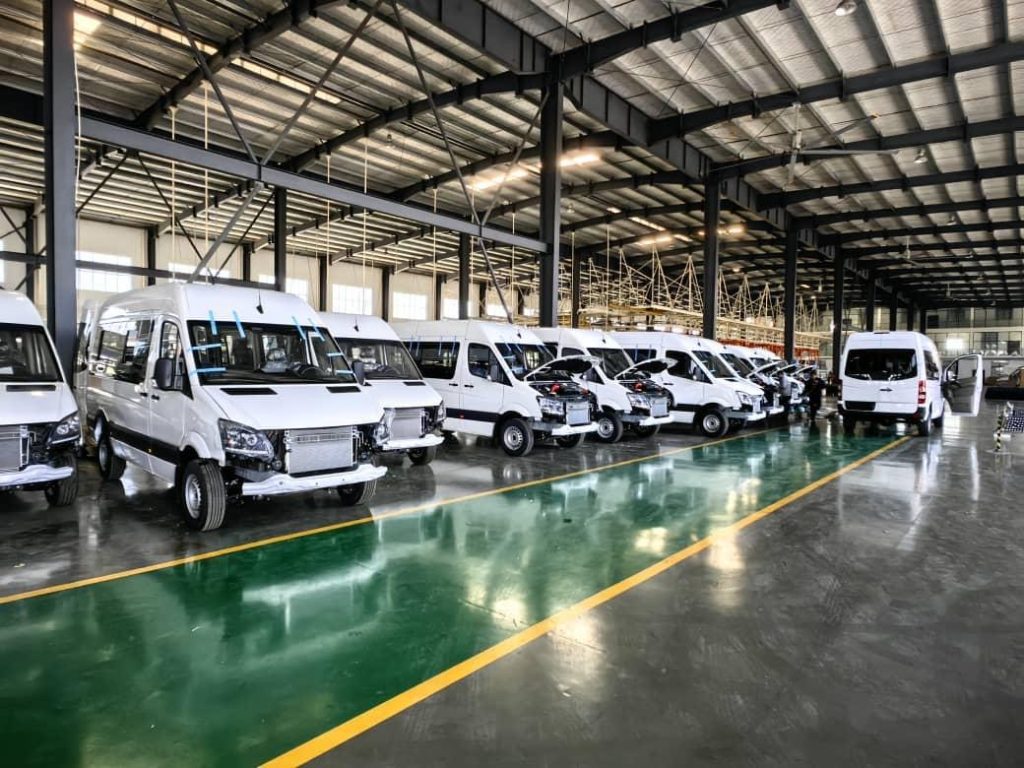The Presidency announced its readiness to launch around 2,700 buses and tricycles powered by CNG before May 29, which marks President Bola Tinubu's one year in office.
The Federal Government aims to establish 100 conversion workshops and 60 refueling sites in 18 states by the end of 2024.
Mr. Bayo Onanuga, the Special Adviser to the President on Information and Strategy, revealed in a statement that the Presidential CNG initiative is set to be rolled out.
Nigeria will begin to have a significant number of CNG vehicles from the end of May, joining other nations with large CNG vehicle fleets.
The delivery of the first essential assets for the CNG initiative's deployment and launch ahead of the first anniversary of the Tinubu administration is all set.
The Presidency stated that about 2,500 tricycles will be ready before May 29, 2024, with plans to deliver 200 units before the first anniversary of the Tinubu administration.
Over 600 buses are targeted for production in the first phase, which will be completed in 2024.
In October 2023, after the removal of the petrol subsidy, President Tinubu launched the Presidential CNG Initiative to provide cheaper, safer, and more environmentally friendly energy.
The CNG Initiative was designed to provide compressed natural gas, especially for mass transit.
The government allocated N100 billion from the N500 billion palliative budget to purchase 5500 CNG vehicles (buses and tricycles), 100 electric buses, and over 20,000 CNG conversion kits, along with plans to develop CNG refilling stations and electric charging stations nationwide.
The initiative was intended to alleviate the burden of the increased pump price for the masses.
Onanuga affirmed, “After months of detailed planning and background work, the committee leading the initiative is prepared to fulfill President Tinubu’s vision and promise.”
Part of Sunday’s announcement included the establishment of a new plant on the Lagos-Ibadan Expressway to assemble tricycles, while Brilliant EV will assemble electric vehicles upon receiving the Semi Knocked Down components.
The Presidency explained, “The SKD parts produced by the Chinese company LUOJIA, in collaboration with its local partner to support the consortium of local suppliers of CNG tricycles, are scheduled to be shipped to Nigeria and expected to arrive early in May.
In partnership with the private sector, the PCNGI aims to establish 100 conversion workshops and 60 refueling sites in 18 states by the end of this year.
Four plants owned by JET, Mikano, Mojo, and Brilliant EV, located in various parts of the country, are involved in assembling the semi-knocked-down components of the CNG buses, as revealed by Onanuga.
He stated that “JET, which has received the SKD parts, is assembling the buses in Lagos and aims to deliver 200 units before the first anniversary of the Tinubu administration.
“Brilliant EV will assemble electric vehicles and is waiting for the SKD parts, which will arrive in due course. The electric vehicles it will produce are intended for states such as Kano and Borno, which currently do not have access to CNG.
The buses and tricycles will also be in major Nigerian cities and university campuses. It's important to mention that gas pipeline projects started by the Buhari administration and finished by NNPCL (the AKK Pipeline) will take gas to rural areas in North East and North West where there is currently not enough gas.
Onanuga stated that using CNG buses and tricycles and aiming to have at least one million natural gas-powered vehicles on the roads by 2027 will be a big change in our country's transportation sector.
With tax and duty waivers approved by President Tinubu in December 2023, the PCNGI committee is working with the private sector to fulfill the promise on the initiative, he further explained.
So far, the private sector has invested over $50m in refuelling stations, conversion centers, and mother stations.
A safety policy document with 80 standards and regulations that operators must strictly follow has been created and approved to make sure CNG conversions are done safely and consistently.
The government also plans to sell thousands of conversion kits for petrol-powered buses and taxis that want to switch to CNG at reduced rates, particularly to commercial vehicle drivers to lower the cost of public transportation.
The Presidency mentioned that NIPCO and BOVAS are involved in providing refilling services for the CNG vehicles and also serving as conversion centers as part of collaboration with the private sector.
NIPCO is establishing 32 stations nationwide to offer the services. The company has completed the setup of four CNG stations.
Similarly, BOVAS is setting up eight stations in Ibadan, two each in Ekiti, Abuja, and four in Ilorin. MRS is also participating.
Efforts are being made to announce the locations of its refilling stations and conversion centers, as explained by the Presidential aide.
The NNPC Limited, which had previously launched a CNG initiative, is also joining the new initiative and is expected to soon announce the locations for CNG refilling and conversion centers nationwide.
The PCNGI is also collaborating with 22 other agency partners, including the Standards Organisation of Nigeria and Nigeria Automotive Design and Development Council to establish 80 Natural Gas Vehicle Conversion and Associated Appliances Standards for the country.
To ensure proper monitoring, Onanuga stated that the Presidential CNG Initiative will also introduce MYCNG.NG App.
The app will include the Nigeria Gas Vehicle Monitoring Systems, which will display CNG conversion and refuelling sites in the country.
The statement concluded by saying that achieving Mr. President's vision of delivering one million gas vehicles is not possible without the private sector, including the RTEAN, NARTO, NURTW, and players in the downstream sector of the transportation chain and financiers.



